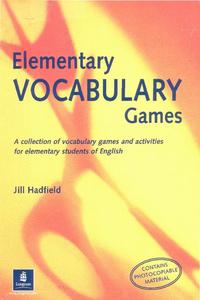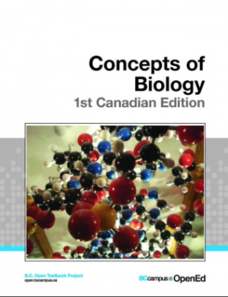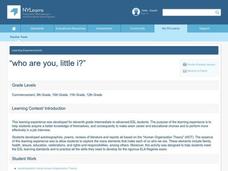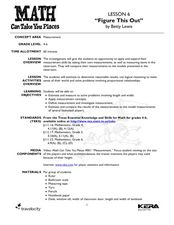Baylor College
A System of Transport
Anatomy and physiology fans imitate how blood flows from place to place in the circulatory system. After constructing and calibrating their own measurement cups, learners discover that different sizes of vessels transport various volumes...
Baylor College
What is Blood Pressure?
Find out how we describe the force created by the blood against the walls of the vessels in a heart-pumping lesson plan! As part of a unit on the heart and circulatory system, cardiology kids use a blood pressure monitor to find their...
Curated OER
Elementary Vocabulary Games
How do learners pick up new vocabulary words? This book offers an explanation and 30 vocabulary games to help your language learners master new words. Each game is based on a particular topic and includes three parts (memorizing,...
Teach Engineering
Challenges of Laparoscopic Surgery
Get some laparoscopic training without the pain with an activity that challenges class members to find out what it is like to perform laparoscopic surgery. Teams perform three different tasks and quantify their performance. The activity...
Teach Engineering
Designing a Robotic Surgical Device
The engineering design process meets laparoscopic surgical robots with an activity that is the last part in a series of 10 and brings all the lessons of the unit together. Teams design and build a remotely controlled laparoscopic device....
K20 LEARN
Are We Golden?
Lead your class on a search for precious bones. Using a presentation, the class investigates the golden ratio in art and nature. Groups of pupils measure specific bones and find the average ratio for the class. To further cement the...
Utah Education Network (UEN)
Utah Open Textbook: 7th Grade Science
Physical and biological factors affect everyday living. Scholars explore electromagnetic forces, motion, the rock cycle, and geological changes. They examine cells as the building blocks of life and how organisms reproduce using images...
BC Open Textbooks
Concepts of Biology – 1st Canadian Edition
How diverse are living things? Individuals explore topics such as cells as the foundation for life, cell division and genetics, molecular biology, and animal reproduction using an open resource Biology textbook. They learn key terms...
Discovery Education
Urinalysis
What do lab tests reveal about a patient's health? Scholars perform a simulated urinalysis on two different patients by testing color, pH, glucose levels, and protein levels. Then, they compare their findings to what they know passes...
A Mighty Girl
Maria da Penha
A colorful poster introduces class members to Maria da Penha. A biopharmacist and activist, Penha was influential in writing and getting passed, Brazil's first domestic violence law which bears her name.
Nemours KidsHealth
Head Lice: Grades 3-5
Keep lice away with a lesson that focuses on best practices. Scholars discuss what lice are, where it can be found, how it can be prevented and cured. A worksheet challenges pupils to examine items they use every day. A quiz gauges...
Children’s Hospital of Philadelphia
Meet the Heros
Vaccine development is the focus of a lesson that explores its history, timeline, and how the scientific method aids the process. Following a discussion about Edward Jenner and Small Pox, learners answer questions in their journals then...
Nemours KidsHealth
Concussions: Grades 3-5
Two lessons focus on concussions. The first activity uses cards and role-playing to detail signs of a concussion. Through readings, discussions, and worksheets, the second activity looks closely at parts of the brain and offers ways to...
Nemours KidsHealth
Bike Safety: Grades 3-5
Bicycle safety is the focus of two lessons. First, scholars read three articles and decide which five safety tips are most important. Second, class members practice hand signals used while riding a bicycle to stay safe.
Nemours KidsHealth
Head Lice: Grades K-2
Head lice—how not to get or give it. Scholars read or listen to kid-friendly articles that offer information about head lice. They complete a worksheet that identifies items they should and should not share with their peers.
Curated OER
No is No, Si is Yes
Third graders match the body part words in Spanish to a picture. They receive a picture of a human with lines coming from its feet, hands, and arms. Students use a word bank, to write the Spanish word that corresponds to the picture. ...
Nemours KidsHealth
Puberty: Grades 3-5
Students discover the changes their body goes through during puberty by participating in a role-playing activity. For this human health lesson, students write a description of themselves as if they were a pituitary gland. Students...
Curated OER
Who Are You?
Students explore the concept of self and analyze the Human Organization Theory. Individually, students write poems about themselves. In small groups, they create a poster related to the 14 categories of the Human Organization Theory....
Curated OER
Perception and the Brain
Students experience how the brain adapts over time to changes in what they perceive. In this human perception lesson plan, students wear special prism goggles that initially disorient the user. Over time, the student is able to adjust to...
Curated OER
The Amazing Heart
Students examine human blood flow by comparing the pulse of athletes. In this human body lesson, students discover the equation for finding the cardiac output from a human heart. Students identify heart rates of accomplished athletes...
Curated OER
Fabulous Forensic Fingerprints
Students explore the uniqueness of each person's individual body. They identify traits and characteristics of the human body, with a main focus on the uniqueness of fingerprints and footprints. Students examine and compare fingerprints....
Curated OER
Figure This Out
Students measure different parts of the human body. In this measurement lesson, students work in pairs to take measurements of human measurements which include: arm span, height, foot length, and wrist to longest finger. They also...
Curated OER
The Wind & Sun: Powerful Alternatives
Students examine the power that is possible from the sun through an interactive program. They also analyze how energy turns into different forms in different parts of the human body. They finally explore how wind is created and how wind...
Curated OER
Play on Architecture
Young scholars describe how buildings effect them emotionally. They recognize and describe at least five components of a particular building as metaphors for parts of the human body [Footing), heart(h), eye (window), door(mouth),...
Other popular searches
- Human Body Parts Pictures
- Human Biology
- Human Body Anatomy
- Human Body Systems
- Human Body Parts
- Human Body Systems Diagram
- Human Anatomy
- Human Body Bones
- Human Body Anatomy Sketching
- Human Body System Handouts
- Human Biology Organ Systems
- Human Body Grade 2

























